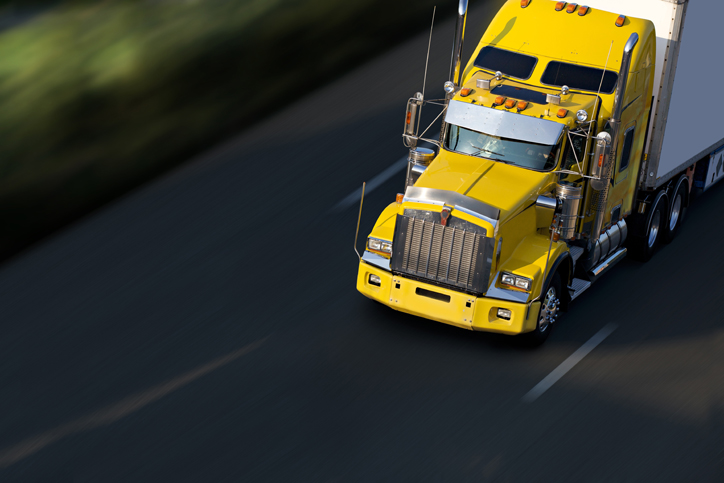New Authority Trucking Insurance for Startups and Owner Operators
Starting your own trucking company is exciting—but before you hit the road, you’ll need the right insurance to protect your business and meet federal requirements. At Milepost Insurance, we specialize in helping new ventures and newly authorized motor carriers get covered fast.
Whether you're an owner-operator applying for your own authority or launching a small fleet, we’ll help you secure affordable coverage through A++ rated insurance companies* that meet FMCSA standards and gives you peace of mind.
What Is New Authority Trucking Insurance?
New authority trucking insurance is designed for businesses that are just starting out in the trucking industry. If you’ve recently received your motor carrier (MC) number and USDOT registration, you’re considered a “new venture” or “new authority.”
Insurance companies often view new ventures as higher risk due to limited driving history and business experience. That’s why it’s important to work with a provider who understands your needs and can help you navigate the process.
This type of insurance is more than just a legal requirement—it’s a foundational part of your business. It protects your assets, your cargo, and your reputation. Without proper coverage, a single accident could derail your entire operation before it gets off the ground.
FMCSA Insurance Requirements for New Ventures
To activate your authority and operate legally, the Federal Motor Carrier Safety Administration (FMCSA) requires:
· Auto Liability Insurance: Minimum of $750,000 or $1,000,000 depending on your cargo and routes. Most brokers and shippers prefer the $1 million limit.
· Cargo Insurance: While not federally mandated, most freight brokers require at least $100,000 in cargo coverage.
We also handle all required filings, including:
· BMC-91 and BMC-91X
· MCS-90 endorsement
· State Form E filings
· Oversize/Overweight permits
· UIIA certificates for intermodal carriers
These filings are essential to keep your authority active and avoid delays in starting operations. Our team ensures everything is submitted correctly and on time.
Coverage Types You’ll Need
Here’s a breakdown of the most common coverages for new motor carriers:
· Primary Liability: Covers bodily injury and property damage when you're at fault in an accident. This is the core coverage required by FMCSA.
· Cargo Insurance: Protects the freight you haul from damage, theft, or loss. Coverage limits and exclusions vary based on cargo type.
· Physical Damage: Includes collision and comprehensive coverage for your truck and trailer. This is especially important if you’re financing your equipment.
· Trailer Interchange: Covers damage to non-owned trailers you use under interchange agreements. Required for intermodal operations.
· Uninsured/Underinsured Motorist: Protects you from drivers without adequate coverage. This is critical for long-haul routes.
· General Liability: Covers accidents that happen off the road, such as injuries at your office or during cargo handling.
· Personal Injury Protection (PIP): Required in some states for medical expenses regardless of fault.
· Medical Payments: Covers medical costs for you and passengers after an accident.
· Downtime Coverage: Reimburses lost income if your truck is out of service due to a covered claim.
· Rental Reimbursement: Helps pay for a temporary replacement vehicle while yours is being repaired.
Each policy can be customized based on your cargo type, operating radius, number of vehicles, and driving history. We’ll walk you through the options and help you choose what’s right for your business.
Tips for New Ventures Shopping for Insurance
· Start early: Begin the insurance process before your authority is granted. This avoids delays in activating your MC number.
· Understand your cargo: Hauling hazardous materials, refrigerated goods, or high-value freight affects your coverage needs.
· Keep your driving record clean: Insurers look at your CDL history, violations, and claims.
· Bundle wisely: Combining liability, cargo, and physical damage can reduce your overall premium.
· Ask about discounts: Some carriers offer lower rates for ELD compliance, safety programs, or prior experience.
Why Choose Milepost Insurance?
We make it easy for new ventures to get insured and stay compliant:
· Top-rated insurance: Policies offered through A++ rated insurance companies*.
· 24/7 Claims Service: Help when you need it most, with fast response times.
· Online Certificates: Instantly generate COIs for brokers, shippers, and load boards.
· Expert Advisors: Talk to real people who understand trucking.
· Zero-Interest Payment Plans: Flexible payment options to help you manage startup costs.
Get your quote online or call our non-commissioned agents for your quote today.
Start your new venture with confidence. Get insured. Get rolling.
Common Questions About New Venture Trucking Insurance
Q: How much does insurance cost for a new authority? A: The amount that new ventures pay for insurance can vary greatly depending on where the business is based, driving history, cargo type, operating radius, and number of vehicles. Rates may be higher for hazmat, reefer, or long-haul operations.
Q: Can I get insurance with less than 2 years of CDL experience? A: Yes, but rates may be higher. We work with carriers who accept first-year operators.
Q: What if I haul hazardous materials or refrigerated freight? A: You’ll need higher coverage limits and may face stricter underwriting. We’ll help you find the right policy and ensure you meet all regulatory requirements.
Q: How fast can I get insured? A: Many policies can be quoted and bound within 24 hours. We expedite filings so you can activate your authority quickly.
Q: Do I need insurance before my authority is active? A: Yes. FMCSA requires proof of insurance before granting operating authority. We’ll help you submit the necessary forms and endorsements.
Q: What’s the difference between general liability and auto liability? A: Auto liability covers accidents involving the ownership, maintenance, or use of an auto on your policy. General liability covers incidents off the road, like injuries at your business location or during cargo handling.
Q: Can I change my coverage later? A: Absolutely. As your business grows, we can adjust your policy to add vehicles, increase limits, or expand coverage.


 Or call
Or call